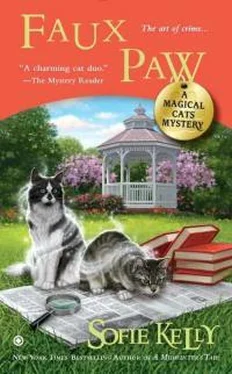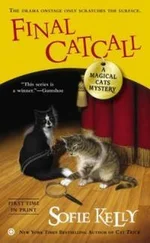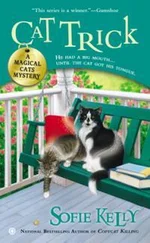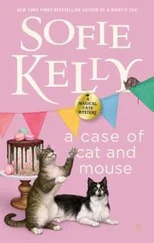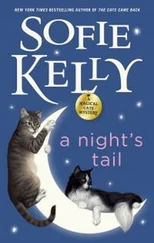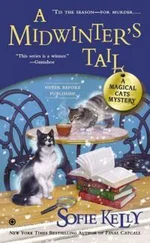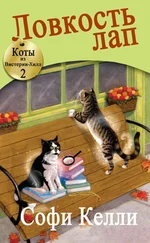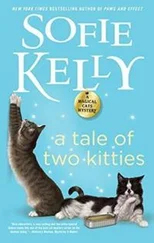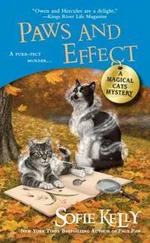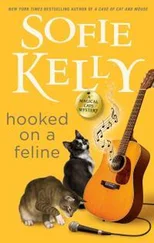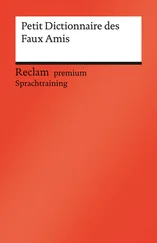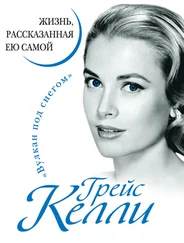I turned back to Maggie. “That’s why I stopped by. You’ll need to let everyone know they won’t be able to pick up their artwork for a few more days. Or if you want to give me phone numbers, I can do it.”
Ruby leaned sideways so she was in Maggie’s direct line of sight. “Want me to take care of that?” she asked.
“Please,” Maggie said. She gave me a hug. “I’m sorry you can’t get back into the building.”
I tucked a stray strand of hair behind my ear. “The worst part is that there are so many programs that don’t have anywhere else to meet: the seniors, story time, Reading Buddies. We’ve just got the new group of kids paired up and started in Reading Buddies.”
Reading Buddies was a program that paired kindergarteners and first graders with older kids who helped the little ones with their reading skills. The little ones benefited from the one-on-one attention and the older ones from the responsibility. Right after Thanksgiving we’d had a fundraiser that had managed—after some major roadblocks—to leave us with enough money to expand the program and add more kids. Now every younger child had a match and the older ones had finished their training with Abigail. The kids had had only one session together. I hated that they were losing momentum.
“They meet after school, don’t they?” Maggie asked. I knew that gleam in her green eyes. She had a plan.
I studied her face. I swear I could see her mind working, or as Mary would say, the little hamsters running in their wheels. “Yes,” I said. “The little ones come right after school lets out and the older ones get their last period off. We usually get started about two thirty.”
“They can come here,” she said. “I mean upstairs in the studio. You don’t have to have chairs and tables, do you?”
“No,” I said slowly. “But they’re not exactly quiet. I know they’re reading, but—” I held out both hands. “They’re kids. They don’t always do it quietly.”
Maggie pulled a hand through her blond curls. “First of all, we’re not exactly packed with customers at two thirty in the afternoon in April. And second, anyone who has a problem with children learning to read can—”
“—bite me,” Ruby said behind us.
Mags laughed. “Anyone who has a problem can take it up with Ruby.”
I laughed too. “All right. Yes.”
This time I hugged Maggie. “Okay, put me to work,” I said, taking off my jacket. Ruby put it and my purse behind the counter.
“We need to get those shelves apart,” Maggie said, pointing to a wide, ceiling-high shelving unit against the end wall. Her neon orange toolbox was sitting on the floor.
I studied the unit for a moment. “I think we need to detach the shelves first,” I said. I took a look at the underside of one of the long barn-board planks and then opened the toolbox to find the right screwdriver.
Maggie had the neatest toolbox I’d ever seen. Everything was organized by size and function and there wasn’t a speck of dirt or rust on anything. She picked up the cordless drill that had been lying on the bottom shelf of the unit. “Do you want this?” she asked.
“No, the screwdriver is fine,” I said. I knelt down and started on the lowest shelf while Maggie, who was taller, used the drill to work over my head.
“Do Marcus and Hope have any suspects?” she asked. She smelled like lavender oil.
“Not exactly,” I said. I was twisted so my head and one shoulder were under the shelf and my voice was muffled.
“So what do they have, exactly?”
I gave the screwdriver one more twist and the screw in the back corner of the shelf came loose. I pulled my head out from under the length of barn board and sat back on my heels. “Have you ever heard of a woman named Devin Rossi?” I asked.
“Yes,” she said. “Is that who they think took the Weston drawing and killed Margo Walsh?”
“It’s what Gavin thinks,” I said.
Maggie frowned. “He could be right.”
I looked up at her. “Seriously?”
She adjusted the drill bit, tightening the chuck. “You could say she ‘works on commission.’ She never hits the big galleries or museums. And I heard she used to be a gymnast, so getting in through the roof would be something she could do.” She turned the drill over in her hands. “But no one’s ever been hurt as far as I know. In fact Devin Rossi has a bit of a Robin Hood reputation.”
“I think Robin Hood’s thing was take from the rich, give to the poor. Not take from the rich, give to the rich.”
She smiled. “Okay, it’s not a perfect analogy.”
I pushed my hair back off my face and leaned under the shelf again. “What you’re saying is she has her fans.”
“In the art world, to some people, she’s kind of a folk hero, yes,” Maggie said. “Not everyone is a fan of big museums and galleries.”
I twisted onto my left shoulder so I could reach the screw in the other back corner of the shelf. “That doesn’t mean it’s okay to take things that don’t belong to you.”
“I know,” Maggie agreed. “Some people just seem to lose sight of that. Robin Hood was probably nothing like Sean Connery or Kevin Costner in tights.”
I grunted as I tried to get some torque on the screw. “No, he wasn’t. Some historians think Robin Hood was a real person. Others think he was a character based on the exploits of people like William Wallace. Still others say he’s totally a creation of folklore—the outlaw hero of ballads.”
Maggie laughed. “How did I know you’d know that?”
I slid my head out from under the shelf. “Was I being obnoxious?” I asked.
She nudged me with her foot. “No,” she said. “It just fascinates me how you know so many things.”
“I spent a lot of time in the library when I was a kid,” I said, just a little self-consciously.
“And I spent a lot of time taking pictures with my mother’s Polaroid instant camera and then coloring in the image with magic markers,” she said. She looked over at Ruby. “Hey, Ruby, what did you like to do for fun when you were about ten or twelve years old?”
“Shoplift Kool-Aid and use it to dye my hair,” she said immediately. Ruby had been on the road to being a juvenile delinquent as a kid before her school principal, Agatha Shepherd, had taken an interest in Ruby’s flair for art. When Agatha died, Ruby had used the money the older woman had left her to fund an art program for children as well as an art school scholarship.
I looked up at Maggie and smiled. “It seems our destinies were set before we even hit puberty.”
She smiled back at me. “No doubt the universe is unfolding as it should.”
I spent about an hour and a half helping Maggie; then I walked up to Henderson Holdings to see Lita. I called Marcus before I left. “Any chance I could stop by the library and get some files from my office now?” I asked.
“You can,” he said, “but I’ll have to take a look at whatever you take out. Will that be a problem?”
Even though I knew it was impossible, it seemed as though I could feel the warmth of his voice against my ear. “It’s just some files on books I want to buy and a draft report on the library’s new damage-control strategy. You’re welcome to look at all of it.”
“I’d rather look at you,” he said.
I felt my cheeks flood with color. Marcus wasn’t a wildly romantic hearts-and-flowers kind of man, but every once in a while he’d say something that would make me either blush or forget how to breathe.
“I’ll be there in about . . .” I glanced down at my watch. How long did it take to walk over to the library? Why couldn’t I remember that? “A few minutes . . . I mean ten minutes,” I said, stumbling over my words.
Читать дальше
